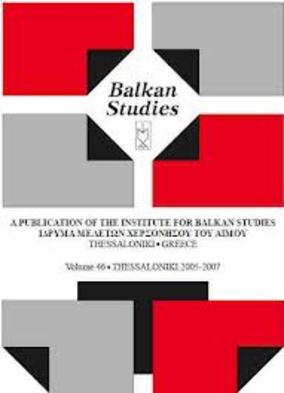Perceptions, construction, and definition of Greek national identity in late nineteenth - early twentieth century Macedonia
Part of : Balkan studies : biannual publication of the Institute for Balkan Studies ; Vol.36, No.2, 1995, pages 247-263
Issue:
Pages:
247-263
Section Title:
Articles
Author:
Abstract:
The notion of belonging to a nationality was introduced in ruralMacedonia during the late nineteenth century. This paper examines theprocess according to which Greek national identity developed duringthat period. Applying a “modernist” approach on nation building andexamining the issue at the level of the individual by using an anthropologicalmethodology, reveals the incompetebility between ethnic, cultural and national identities. People who belonged to the same ethnicgroup or shared the same culture in Macedonia during the period underexamination, very often identified themselves with different nations.The decision of identification with a nationality during the latenineteenth-early twentieth century was a political one, very oftenirrelevant to the ethnic or a cultural identity of individual actors. It wastaken according to the needs, priorities, beliefs and fears of those whoconducted it.
Subject:
Subject (LC):
Keywords:
Ελληνική εθνική ταυτότητα Μακεδονίας, 19ος-20ός αιώνας
Notes:
Περιέχει βιβλιογραφία




